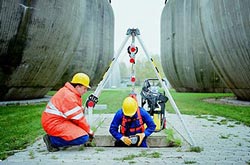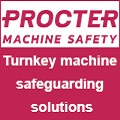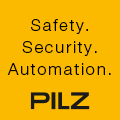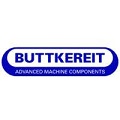
Posted to News on 20th Mar 2014, 10:57
Confined spaces can kill - understanding the current Regulations
Asphyxia, gas poisoning, fumes, fire and explosions are common hazards. Despite legislation and copious amounts of available information, injury and death in confined spaces still occur, sometimes with employers or employees being unaware of how the Confined Spaces Regulations 1997 apply to them.

In December 2011, a water utility issued a safety alert about a worker who suffered severe brain damage as a result of entering a confined space to read a water meter without using his equipment to check whether the atmosphere in the chamber was safe.
This was later measured as containing six per cent oxygen. Two water meter readers attended a 1.8m-deep water meter chamber to carry out a routine reading. They had carried out an atmosphere check using a single channel oxygen gas monitor of the previous chamber and as the atmosphere for this was acceptable, they assumed that the existing chamber was also suitable.
Andy Richford, business development manager at PASS, advises: "Thousands of people do this type of activity all over the UK as a daily, regular job. The HSE has an approved code of practice (ACoP) for guiding employers as to how to protect their employees from the dangers that confined spaces can present, some of which are invisible.
"The common problem with confined spaces incidents is that very often persons who are caught out are unaware that there could be dangers apparent or even that they are in a confined space. It is commonly the simple, low-risk task or process that catches people out.
"A best practice solution is for employers to instil a basic awareness of these potentially lethal environments if they are unsure as to whether or not they have these environments, or whether or not their employees are ever exposed during their activities."
Having had the initial awareness training, employees will then be able to identify further training requirements for their confined spaces requirements should that be the case.
PASS holds specialist Confined Spaces training at its Northeast City & Guilds (C&G) approved location and is an industry-wide confined spaces specialist for utilities and facilities management in commercial and industrial environments, including petrochemical, engineering and fabrication, local authorities, civil engineering and construction.
The company hosts public courses and bespoke events designed to suit all requirements, as well as consultancy services, asset risk assessment, process risk assessment and method statement, safe systems of work, permits to work and emergency planning.
Every confined space could be designated with a risk level of low, medium and high. One-day awareness events can be delivered at customer locations, paving the way for more comprehensive training courses which may last up to 3 days, for example C&G 6150-53 for high-risk confined spaces.
For further information visit PASS Ltd's specialist Confined Spaces web page.
PASS (Portable Appliance Safety Services Ltd)
1 Wilson Street
Thornaby
TS17 7AR
UNITED KINGDOM
+44 (0)845 365 4050






























